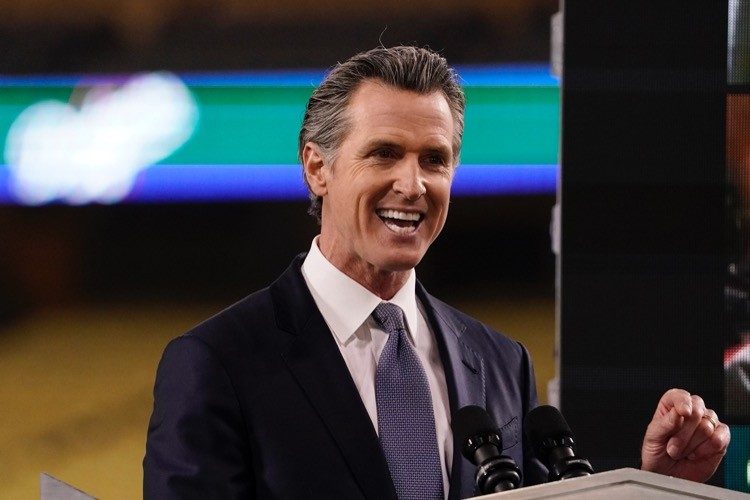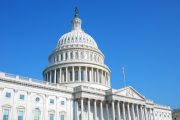
On Monday, the U.S. Treasury announced $350 billion in COVID-19 aid for state, local, tribal, and territorial governments. These funds are part of the so-called American Rescue Plan, a $1.9 trillion spending package proposed by President Joe Biden and passed by Congress in March.
According to Biden’s relief plan, the funding amount for each state is based on the number of its unemployed citizens at the end of 2020. By this formula, poorly run Democrat states that imposed strict COVID restrictions during 2020 will receive a nice bailout.
The Golden State, for example, with its large unemployed population, is getting $27 billion.
On Monday, California Governor Gavin Newsom, a Democrat, also announced that California amassed a $75.7 billion budget surplus last year. “We believe people are better suited than we are to make determinations for themselves on how best to use these dollars,” the governor said at an event in Oakland.
Newsom also unveiled his $100 billion California Comeback Plan — the largest state rebate tax in U.S. history. The plan is aimed at helping the state bounce back from the economic impact stemming from lockdowns enacted by Governor Newsom himself, for which he is facing a hotly contested recall later this year.
“California’s recovery is well underway, but we can’t be satisfied with simply going back to the way things were,” said Newsom in a statement. “We are tripling the Golden State Stimulus to get money in the hands of more middle-class Californians who have been hit hard by this pandemic. Two in three Californians will receive a check from the state and more than $5 billion in aid will be made available to those who need help paying their rent or utility bills.”
Under Newsom’s plan, taxpayers earning between $30,000 and $75,000 a year would get a $600 payment. Households earning up to $75,000 with at least one child — including tax-paying illegal immigrants — would receive an extra $500 payment. The direct payments would total an estimated $8.1 billion, said H.D. Palmer, a finance spokesman. The proposal also includes $5.2 billion to help with back rent and future payments and $2 billion for overdue utility bills for people who fell behind during the pandemic.
The rebates would be the second round of state payments this year. Under legislation mandated by Newsom in February, people making less than $30,000 got a $600 payment. Both legal and illegal immigrants making up to $75,000 and file taxes also got the check.
Newsom also plans to allocate $12 billion of the surplus to tackle homelessness that reached epic proportions on his watch.
According to Politico, the governor also plans to send $27 billion of the surplus to K-12 schools and community colleges under state requirements, while $11 billion will go toward reserves and debt payments. He is proposing that the remaining $38 billion boost other programs. Legislative Democrats are calling for Newsom to provide Medicaid for all undocumented immigrants, increase support for homeless residents, expand child care and bolster social services that were cut in the Great Recession.
Currently, Newsom is touring the state ahead of his May budget revision later this week, which will set in motion negotiations with state lawmakers before a June 15 deadline.
As recently as a year ago, California’s top elected officials were staring into a budgetary abyss, with Newsom’s office projected a budget deficit of up to $54 billion, or about a quarter of the entire state budget. Legislators prepared to cut state government to the bone. “We were scared, all of us,” state Assemblyman Chad Mayes (I) said last month. “We all agreed, ‘Hey, we’re going to take a hit because we’re heavily dependent on high-income earners.’”
But the stock market’s rebound, and its yearlong rally, have helped repair the gap. California is unusually reliant on receipts from capital gains tax, so a strong year in the market is good news for the state government.
Newsom’s Republican opponents criticize his rebate plan.
“The governor’s got a lot of money to hand out. And of course, he’s worried about his own neck,” businessman John Cox told a campaign event in Los Angeles.
“Californians need permanent, real tax relief, not just one-time stimulus checks,” former San Diego mayor Kevin Faulconer said in a statement.
As reported by the Seattle Times, some observers believe that the budget surplus puts Newsom in a prime political position, while others argue that the bailout could give Newsom a temporary boost but are unlikely to make or break his political future. Instead, his fate will likely depend on a host of issues, such as the pandemic, drought, wildfires, and other topics on voters’ minds during the November recall elections.




